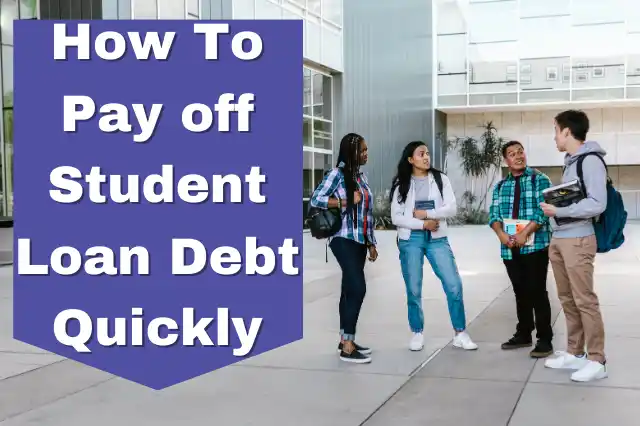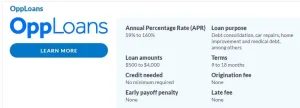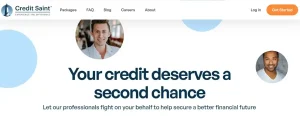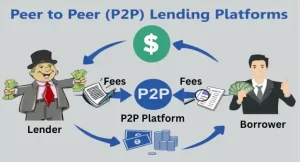Student loan debt can be overwhelming and it can be hard to know where to start when it comes to paying it off. They are all looking for ways to pay off their student loans faster. In this article, we will be discussing how to pay off student loans faster.

Certainly, the best way to pay off your student loans is to pay more than the bare minimum each month. The more you pay toward your loans, the less interest you’ll owe and the quicker you repay them.
The good news is, that there are several proven strategies that can help you pay off your student loan debt quickly.
By implementing these strategies, you can become debt-free sooner and start enjoying your life without the weight of student loan debt on your shoulders.
Tips For Paying off Student Loan Debt Quickly
Here are the 10 different ways to pay off student loans faster:
1. Create a Budget and Stick to it
The first step in paying off your student loan debt quickly is to create a Budget.
Budgeting is simply planning and understanding your monthly cash flow, the incoming and outgoing money. A budget will help you understand where your money is being spent and where you can cut back.
Make sure to include your student loan payments in your budget, and try to pay more than the minimum amount due each month. By sticking to your budget and making extra payments, you’ll be able to pay off your student loan debt faster.
2. Pay More Than the Minimum Each Month
This is probably the most obvious way to pay off your student loan ahead of schedule.
Paying a little extra each month can reduce the interest you pay and reduce the total cost of your loan over time. By reducing the principal balance, you’ll be minimizing the duration of the loan period and the interest accrued.
Continue to make monthly payments even if you’ve satisfied future payments, and you’ll pay off your loan faster.
You can use a student loan calculator to see how extra payments can impact your student loans. Play around with different figures to see how much faster you could become debt-free.
Note: Another Strategy is to pay Bi-weekly rather than monthly.
3. Utilize income-driven repayment plans
Income-driven repayment plans are a great option for those who have a low income. These plans are designed to make student loan payments more affordable by calculating your payments based on your income.
While these plans can make payments more affordable, they may also extend the life of your loan.
Read More: How to Reduce Your Debt Quickly?
4. Refinance your Loans – (If you have good credit and a steady job)
Refinancing your student loans means switching to a new lender that offers lower interest rates or better terms.
Refinancing your student loans can help you get a lower interest rate, which can make your payments more manageable.
Refinancing can be a good option if you have a good credit score and a steady income. If you have a credit score of at least 600s, have a solid income, and a debt-to-income ratio below 50%, then you are a good eligible candidate for refinancing.
If not, then it can take some time to establish your credit history and meet the eligibility criteria for refinance lenders.
Note: Keep in mind that refinancing your loans may mean giving up some of the benefits of your current loans, such as loan forgiveness programs and income-driven repayment plans.
5. Apply for Loan Forgiveness Programs
There are a variety of loan forgiveness programs available for those who work in certain fields or meet certain criteria such as teachers, public servants, members of the United States Armed Forces, and more.
These programs can provide a way to have your loans forgiven, which can save you thousands of dollars in the long run. Most of these programs have eligibility requirements, you can check the eligibility criteria and apply to the program you qualify for.
Also, research whether your employer offers repayment assistance for employees with student loans. There are many who do!
Biden forgiveness plan: In August, President Biden announced a plan to forgive up to $20,000 in federal loans for eligible borrowers. Forgiveness is limited to those with incomes of $125,000 or less (or $250,000 if you’re married and file a joint tax return). You can get more information about the plan through the Federal Student Aid website and sign up for email updates to find out when the application is ready.
Check out these Student Loan Forgiveness Programs.
6. Use the Debt Snowball Method
The debt snowball method is a great way to pay off your student loans quickly.
With this method, you focus on paying off your smallest loan first, while still making the minimum payments on your other loans.
Once the smallest loan is paid off, you move on to the next one and continue till you pay off all the loans. This method will help you see progress and it can motivate you to keep going until all your loans are paid off.
7. Take advantage of student loan interest tax deductions
You may be eligible to deduct the interest you pay on your student loans from your taxes.
The federal government offers a student loan interest deduction on your taxes for interest paid during the year on qualified loans. The law allows you to deduct up to $2,500, depending on your adjusted gross income.
The deduction is available for both federal and private student loans. This can save you money and help you pay off your loans faster.
It can also be a good idea to take some or all of your tax refund every year and put it toward your student loans.
Speak with a good tax advisor to make sure you’re taking advantage of any relevant tax benefits related to your education.
Learn More: How Tax and Debt Can Make Rich People Richer?
8. Set Up Automatic Payments
Not sure if you would pay the loan each month, sign up for automatic debit payment at the beginning of the month. That way, your student loan servicer will automatically deduct your student loan payment from your bank account each month.
This will ensure that you make payments on time, and also may be able to get an interest rate deduction for enrolling. Contact your loan servicer to see if your loan is eligible for this interest rate reduction.
9. Consider a Side Hustle or a Side Job
If you’re looking for ways to bring in extra income, consider a side hustle or even a part-time job while attending college.
You can earn extra money by freelancing, starting a small business, renting out a spare room on Airbnb, or even getting a part-time job on campus. The extra income can be used to pay off your student loans faster.
Check for any opportunities that work with your schedule, your skillset, and your school’s resources if they’re hiring for any on-campus job.
10. Seek Financial Counseling
If you’re feeling overwhelmed by your student loan debt, consider seeking financial counseling.
A financial counselor can help you create a budget, understand your repayment options, and make other strategies and plans to pay off your student loans.
It’s important to note that financial counseling is not the same as debt settlement or credit counseling. And these financial counselors will not negotiate with your creditors or consolidate your loans on your behalf.
Instead, they can provide you with the information, resources, and guidance you need to make informed decisions about your finances. Also, they can provide emotional support & guidance to manage your stress & anxiety about having student loans and help you create a plan to achieve your financial goals.
The Bottom Line
By following these strategies, you can start paying off your student loan debt quickly and become debt-free sooner. Remember that paying off your student loan debt is a marathon and not a sprint, be patient, and stay committed to your plan.
FAQs – How to Pay Off Student Loans Faster
How can I pay off $50,000 in Student Loans Faster
1. Pay More Than the Minimum Amount Each Month.
2. Refinance Your Loans.
3. Apply For Loan Forgiveness Programs.
4. Use Debt Snowball Method.
5. Seek Financial Counseling
Additional ways to tackle student loan debt.
What is Debt Snowball Method?
It is a way to pay off your debts, starting with the smallest debt first while still making the minimum payments on the rest of your debts.
How Refinance Your Students’ Loans Work?
Basically, refinancing your student loans means switching to a new lender that offers lower interest rates or better terms. If you have student loans with a high interest rate, you may be able to pay them off faster by refinancing.
Opting for a shorter term may increase your monthly payment. But it will help you pay the debt faster and save money on interest.
Refinancing can be a good option if you have a good credit score and a steady income. If you have a credit score of at least 600s, have a solid income, and a debt-to-income ratio below 50%, then you are a good eligible candidate for refinancing.
If not, then it can take some time to establish your credit history and meet the eligibility criteria for refinance lenders. Many lenders also might require you to have a stable income or employment history for quality.
For example, refinancing $50,000 from 8.5% interest to 4.5% could let you pay off your student loan debt nearly two years ahead. It would also save you about $13,000 in interest, even with payments that stay about the same.
Note: Keep in mind that refinancing your loans may mean giving up some of the benefits of your current loans, such as loan forgiveness programs and income-driven repayment plans.
What is Debt Snowball Method in Simple Layman Terms
The debt snowball method is a way to pay off your debts, starting with the smallest debt first while still making the minimum payments on the rest of your debts.
The idea is that by paying off the smallest debt first, you will quickly see progress and be motivated to keep going until all your debts are paid off.
Here’s an example of how the debt snowball method works:
Let’s say you have four debts:
- Credit card 1: $1,000 balance, $50 minimum payment
- Credit card 2: $2,000 balance, $70 minimum payment
- Student loan: $10,000 balance, $150 minimum payment
- Car loan: $15,000 balance, $250 minimum payment
With the debt snowball method, you would focus on paying off the credit card with the smallest balance first. In this case, it’s credit card 1 with a $1,000 balance. You would make the minimum payments on the other three debts and put as much extra money as possible toward paying off the credit card 1.
Once you’ve paid off credit card 1, you move on to the next one, credit card 2. This time, you would make the minimum payments on the other debts, and put the extra money you were putting toward credit card 1, plus the minimum payment of credit card 1, towards credit card 2.
You keep repeating this process until all your debts are paid off. The idea is that by paying off the smallest debt first, you’ll quickly see progress and it will give you the motivation to keep going and tackle the larger debts.
How Financial Counseling can help with Student Loan Debt?
Financial counseling can help individuals with student loan debt by providing guidance and creating a plan to manage and eventually pay off the debt.
A financial counselor can help you understand your options for repaying your student loans, including different repayment plans and loan forgiveness programs. They can also help you create a budget and identify areas where you can cut expenses to put more money toward paying off your student loans.
Additionally, a financial counselor can help you evaluate your overall financial situation, including any other debts you might have, and create a plan to tackle all of your debts. They can also help you understand your credit score, and provide guidance on how to improve it.
Financial counselors can also provide emotional support and guidance on how to manage the stress and anxiety that can come with carrying student loan debt. They can also help you set realistic financial goals and work with you to develop a plan to achieve them.
It’s important to note that financial counseling is not the same as debt settlement or credit counseling. Financial counselors will not negotiate with your creditors or consolidate your loans on your behalf. They will instead provide you with the information, resources, and guidance you need to make informed decisions about your finances.


